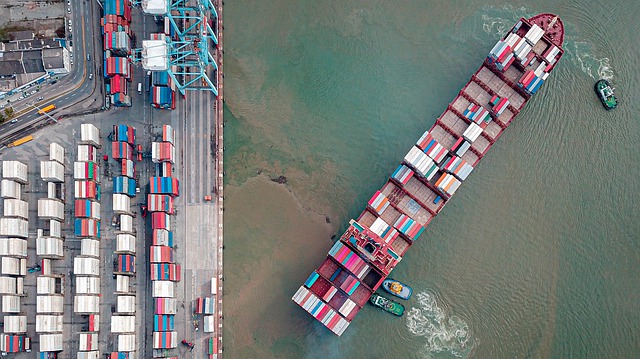
-
President Rodrigo Duterte signed Executive Order No. 159 adopting an integrated approach to the ratification of and accession to International Maritime Organization conventions and instruments
-
EO 159 reconstituted the Inter-agency Coordinating Committee on the Ratification and Implementation of Maritime Conventions
-
The committee has been renamed as Inter-agency Coordinating Committee to Facilitate the Ratification and Accession to and Implementation of Maritime Conventions (ICCFRAIMC)
-
The ICCFRAIMC will be composed of representatives from relevant government agencies led by the Department of Transportation and Department of Foreign Affairs
-
ICCFRAIMC’s functions include considering new international maritime conventions for possible ratification or accession, conducting a national interest analysis, and studying measures to satisfy convention requirements
President Rodrigo Duterte signed an executive order (EO) adopting an integrated approach to Philippine ratification of and accession to International Maritime Organization (IMO) conventions and instruments.
EO 159, which was signed on December 28, 2021 and published on January 13, 2022, reconstitutes the Inter-agency Coordinating Committee on the Ratification and Implementation of Maritime Conventions (ICCRIMC) and renames it the Inter-agency Coordinating Committee to Facilitate the Ratification and Accession to and Implementation of Maritime Conventions (ICCFRAIMC).
The ICCRIMC was created in 2015 by then Department of Transportation and Communications to monitor developments and consider new international maritime conventions for ratification, including measures needed to satisfy the conventions’ respective requirements, through research, monitoring and coordination with other government agencies.
Prior to the signing of EO 159, the Maritime Industry Authority (MARINA) in October 2021 said it had convened the first ICCRIMC meeting to provide updates on the country’s priority IMO conventions and discussed the then draft EO to create the ICCFRAIMC.
EO 159 states that as a policy, the country “is committed to remain at the forefront of international maritime developments, and identify ways to improve its maritime sector, by integrating and empowering its Maritime Administration to study new maritime conventions and instruments for ratification, determine the responsibilities required thereby, and conduct a national interest analysis to ascertain their benefits to the country.”
“The country strives to become a major maritime nation that gives premium to the protection of life and marine environment, enhancement of the level of safety of shipping, and advancement of the standards of training, certification and watchkeeping for seafarers,” the EO reads.
The ICCFRAIMC will be composed of representatives from relevant government agencies led by the Department of Transportation as chair and Department of Foreign Affairs as vice chair.
Member agencies include the Department of Science and Technology, MARINA, Philippine Coast Guard, Philippine Ports Authority, Cebu Port Authority, Bureau of Fisheries and Aquatic Resources, Department of Environment and Natural Resources (DENR)-Environmental Management Bureau, DENR-Biodiversity Management Bureau, University of the Philippines (UP)-Marine Science Institute, and UP-Institute of Environmental Science and Meteorology.
MARINA’s Overseas Shipping Service will serve as the ICCFRAIMC’s Secretariat and provide technical and administrative support.
ICCFRAIMC’s functions include, among others, considering new international maritime conventions for possible ratification or accession, conducting a national interest analysis, and studying measures to satisfy the convention requirements.
The ICCFRAIMC should also develop and adopt a National Work Programme to chart timelines, assign agency roles and responsibilities, and ensure the adopted instruments are implemented and enforced.
The ICCFRAIMC will review and endorse proposed legislation, national policies and administrative regulations to support the implementation of adopted instruments.
The funding will be charged against existing appropriations of ICCFRAIMC member agencies and existing budgeting, accounting, and auditing rules and regulations. Funding requirement for subsequent years will be incorporated into the annual budget proposals of the ICCFRAIMC member agencies.
The Philippines, a member of the IMO since 1964, has ratified a number of international conventions which aim to promote the safety of Filipino seafarers, protect the marine environment from the operation of ships, and raise standards of certification to increase competency of Filipino seafarers.




